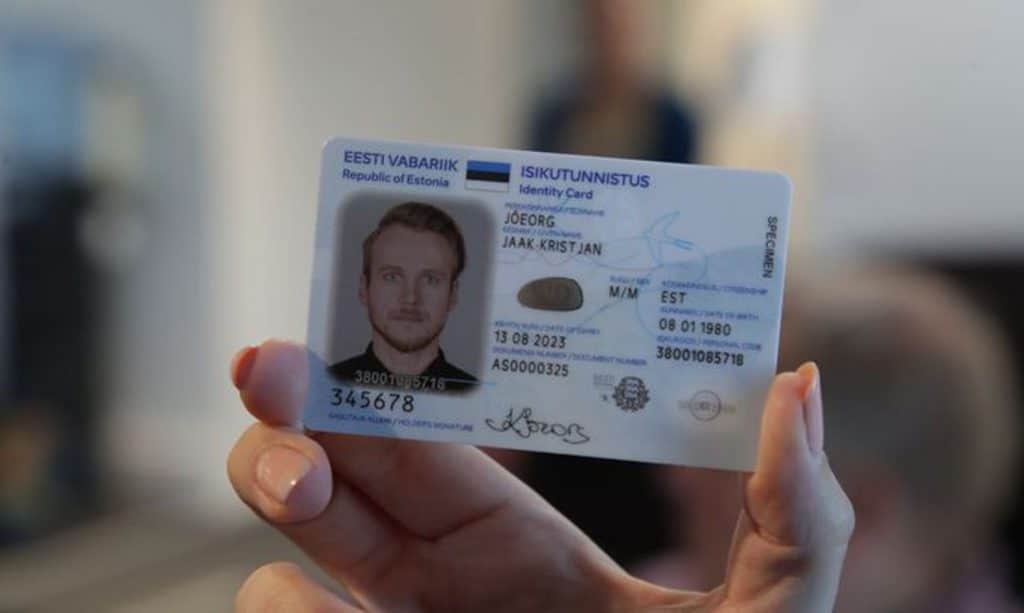Estonia navigates future of ID cards, digital identity and digital wallets | Biometric Update

Estonia is keeping its physical identity cards until the creation of the European Union Digital Identity (EUDI) wallet.
In January, the Estonian Ministry of Interior proposed making ID cards optional as more citizens rely on the country’s multiple digital solutions. The proposal, however, has been met with resistance within the Ministry of Economic Affairs and Communications (MKM).
Estonians are legally obligated to have an ID card while digital IDs are still voluntary. Passports are also not mandatory. This means that If the requirement for an ID card is lifted, some residents could end up with no ID at all, Estonian Public Broadcasting (ERR) reports.
“Historically, the fact that the ID card was mandatory allowed for a critical mass of usage, which propelled the entire success story of Estonia’s digital state,” says Madis Tapupere, the Ministry’s head of digital state technologies.
Some of Estonia’s digital identity credentials, however, will become obsolete, says Tapupere. Once the EU finalizes regulations for online identifications and transactions, the country’s Mobile-ID will no longer be able to be used for digital signatures. This, alongside Smart-ID, is one of the two alternative ID methods to the ID card offered in Estonia.
But the country will need more than one digital identity and ID cards, created by Idemia, are likely to stick around as a backup method, according to Tapupere.
Estonia can update the ID cards as necessary to maintain their role in the system with Idemia ‘s JPatch technology, which enables remote upgrades of embedded software in eID documents. The company explained how JPatch works and the importance of field updates in a recent post.
Approximately 1.1 million people out of Estonia’s 1.3 million population own an ID card. Around 840,000 people in Estonia own a passport while digital IDs have a lower uptake: 244,000 people use Mobile-ID and nearly 700,000 people use Smart-ID.
In an interview last year, Gregory Kuhlmey, digital identity program manager at Idemia, said that different digital wallets are likely to continue coexisting with national wallets, even though having a single wallet solution seems more convenient.
“Solving all the problems at once just isn’t possible,” says Kuhlmey. “The national wallet is designed to be a benchmark, highly secure, sacrificing a few usability features.”
The draft law to make ID cards optional also bundled a proposal to display documents through the mRiik (mState) digital identity mobile application. The app is slated to be released this summer. In collaboration with the Estonian Information System Authority (RIA), digital identity provider Cybernetica will analyze the architecture of mRiik and its compatibility with the country’s digital ID ecosystem.
Cybernetica and Idemia have an established partnership building Estonia’s digital government ecosystem.
biometrics | Cybernetica | digital government | digital ID | eID | Estonia | IDEMIA
An apparent data breach of personal information including face biometrics of about a million Australians has been reported, and an…
In the great age verification debate sweeping the globe, much attention has been directed at pornography tube sites such as…
Worldcoin continues to take its iris biometrics and digital identity scheme into new territories – and, like clockwork, trigger alarms…
San Francisco-based startup OVE has unveiled a prototype of its Touch & Go fingerprint scanner for biometric retail payments. Co-founder…
A press release from Socure announces the publication of its inaugural Document and Biometric Identity Fraud Report, which examines the…
Bank of Ireland announced it will invest more than €34 million (roughly US$36 million) to upgrade its phone and CRM…
This site uses Akismet to reduce spam. Learn how your comment data is processed.